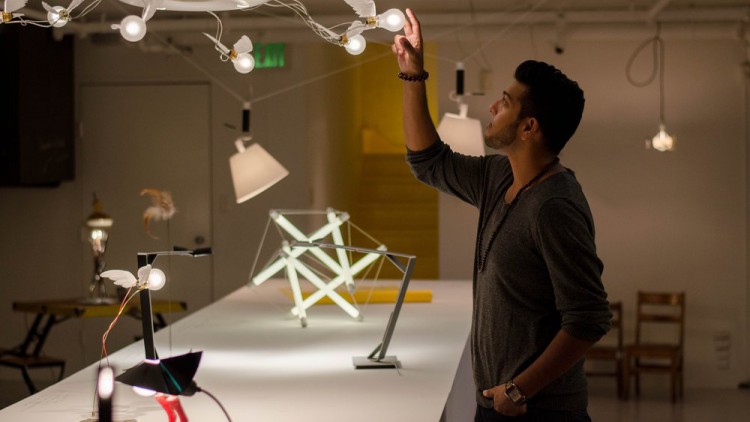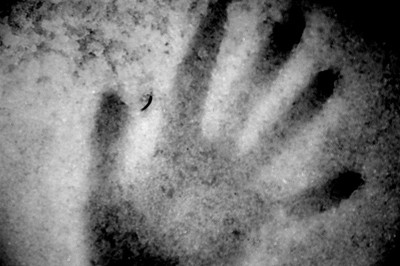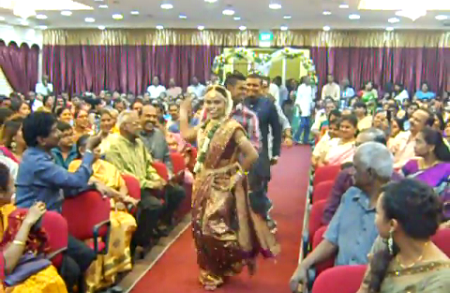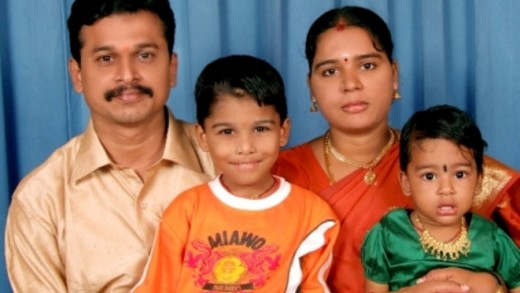Warning: This post contains graphic depictions of sexualized violence.
I remember the second time he pushed me into that bathroom stall and raped me. I didn’t cry. I didn’t resist. I just let it happen in silence, my face pressed harder and harder into the cool white ceramic tiles. I was seven, and I didn’t know any better. Right outside the men’s bathroom stall was his little sister, who was a few years younger than me. She was a precocious little girl and on one instance asked him why I couldn’t go to the bathroom on my own. He explained that I was afraid. It’s true, I was afraid. My parents were only a few feet away in the same building, lost in prayer and seeking comfort from a god I no longer believe in. I felt alone.
I told him that I would tell my parents. Without a second thought, he flung a vase at my face, cutting open my lips and knocking out my front tooth. Blood poured from my mouth, spilling onto the red Sunday school carpet where the colours matched almost perfectly. His sister and I wailed, our distressed cries, drowned out by psalms sung in the chapel next door. When my parents came to collect me, they were shocked to see my bloody lips. He simply told them that his little sister and I had fought.
For the next two years I dreaded going to church, knowing that I had to submit to more than just god. I was scared, confused and ashamed. Unable to grasp the gravity of the situation at the time, I filed it away as something that just happens.
Years later, my girlfriend would tell me that I had a distant touch. I knew what she meant. But I didn’t know how to respond. We had been dating for almost a year, but the closer we became, the more I pulled away. I knew I loved her, but with every touch I felt more and more disconnected. As I had grown older my mind started to catch up with what actually happened in that church. Ever so slowly, piece by piece, I started to fall apart.
As she sat in a Tim Horton’s booth one New Year’s Day, I hid in the bathroom. I mustered up the strength to give her an answer, but I couldn’t say the words out loud. I was still scared, confused and ashamed of what I had passively let happen.
Reluctantly, I typed, ‘I was molested as a kid,’ into my phone. I pressed send. Right at that moment, I felt like I had lost control.
I waited. I cried.
My phone vibrated with her response. It read plainly ‘I was too.’
As fucked up as it sounds, I was delighted at the idea of another having experienced what I had experienced. I fleetingly felt that I was not alone.
Hanging my head in shame, I walked back to her. I still could not say the words out loud. She promised not to ask again. I was relieved that my secret would now be safe, stored away like an old edition of a now seldom-read publication, wedged on the top shelf of a tall bookcase.
As the years went by, we grew closer, give or take the Bollywood drama that a brown relationship invariably entails. I started law school with incredible people and travelled the world. However, I continued to struggle internally. I started reliving the pain of what happened in that church, over and over again, sometimes two or three times a week. I would toss and turn, wake up in the middle of the night, cry myself to sleep, and repeat the cycle. With every intimate touch, I could feel him violating me.
At the beginning of 2013, I completely shut down. I was in my last semester of law school, working a dream job in Melbourne, planning a road trip across Europe, and was surrounded by some of my closest friends. Nevertheless, after a turbulent previous semester, cracks slowly appeared in my life. My work and relationships started to suffer. One by one, my commitments fell by the wayside. I was exerting less energy but I felt more overwhelmed, stressed, impatient and physically unwell. Everything continued to crumble and my sense of self started to deteriorate. The nightmares became persistent and I would wake up every morning in a dark cloud, unable to shake the feelings from the night before. At a time when I should have been happiest, I felt under pressure and was depressed, questioning my sanity and sexual identity.
I sought advice from a close friend. She and I sat by a lake, drowning in a birthday bottle of Glenfiddich. I asked her what I was supposed to do to move on and stop feeling the way I did. Having gone through this pain herself, she said, ‘the pain doesn’t go away, you just get used to it’.
Although I am significantly happier than I was over year ago, things aren’t that different now. I still sometimes wake up in a cloud, smile awkwardly through pedobear jokes, fast-forward through scenes of Maggie Gyllenhaal being raped on a dirt floor in Palestine. It’s not the violent act itself that fucks with my head. It is the passive inability to prevent the act from happening that makes my skin crawl.
As a South Asian male raised in a relatively traditional home, I grew up in a community where child molestation is very much characterized as a western phenomenon. Growing up in an environment where discussions of sex and sexuality are taboo made my particular experiences that much more challenging. I felt isolated and had no one to speak to about this. Perhaps worse still, this cultural taboo makes it possible for culprits to avoid detection for longer, allowing them to target more victims.
Of the six South Asians I entrusted with this information, four have had similar sexually abusive experiences. This problem needs to be discussed, not only among the wider male population, but also more aggressively within the South Asian community. South Asian parents need to be aware that our community is not immune from sexual predators. These predators come in the form of uncles, fathers, brothers, and friends. More often than not, it’s someone you know. One out of every six boys reports being a victim of sexual abuse. We have seen these statistics again and again and they haven’t changed.
Knowing that an older male cousin forced a friend of mine to perform oral sex on him for years, or that an uncle digitally raped another friend of mine when she was 11 is totally unacceptable. These are real stories of real people living in our community today. They didn’t seek the help they needed nor do their families know that these events have even occurred. This is a sad reality for many victims in our community.
Victims need to know that there are tools available to help cope with the derailment that often follows these traumatic events.* We need to make these tools more accessible in our communities where sex and sexuality are taboo topics of conversation. Victims in South Asian communities need a forum where they feel secure, comfortable and empowered to regain control over their own lives. Sharing these experiences will help victims heal from the past and help create conscious, risk aware families.
I have lied to a lot of people. I was nervous and afraid and I still am. But if we all let our darkest secrets cripple us into silence, we let the darkness settle and critically, we silence other victims. We can only protect children if we engage in open discussion. Discussing taboo subjects surely trumps tacit authorization of child molestation. Otherwise, we let our most vulnerable continue to be pressed into the floor and condemn them to a life of darkness, confusion and shame.
*The Gatehouse is an organization that offers support for Adult survivors of childhood sexual abuse. This is offered at no cost to participants. If you would like to make some positive changes in this area of your life, please call 416-255-5900.
If you just want a friend to talk to or if you are not based in Toronto, I am happy to have a chat or help you find the appropriate support service in your community. Do not hesitate to email me at andre.thillai@gmail.com.
-This article originally appeared on WeAreNotModels and has been republished here with permission.

 Andre Thillai
Andre Thillai









